| "You have to figure out how to get that message out when you can't get it out from the head of the country." -Dr. Deborah Birx on challenges leading the Trump COVID task force
Welcome to "Face the Nation"'s Five at Five newsletter. Scroll down for your five takeaways from today's broadcast of "Face the Nation" with Margaret Brennan on CBS. Did someone forward you this? Sign-up at cbsnews.com/email. 1. Birx on COVID disinformation inside the White House 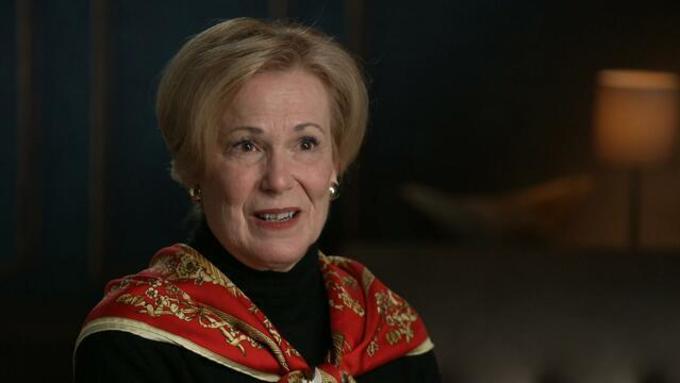 During Dr. Deborah Birx's interview with Margaret Brennan, the former White House Coronavirus Response Coordinator acknowledged concerns of disinformation being shared with and disseminated by the commander-in-chief. What we asked: Do you think President Trump appreciated the gravity of the health crisis you were describing? What Birx said: "I think the president appreciated the gravity in March. It took a while after I arrived in the White House to remove all of the ancillary data that was coming in. I mean, there was parallel data stream coming into the White House that were not transparently utilized. And I needed to stop that where people were-- Outside advisers, coming to inside advisors. And to this day, I mean, until the day I left, I am convinced there were parallel data streams because I saw the president presenting graphs that I never made. So, I know that someone- or someone out there or someone inside was creating a parallel set of data and graphics that were shown to the president. I know what I sent up and I know that what was in his hands was different from that.You can't do that. You have to use the entire database-- To this day I don't know. I know now by watching some of the tapes that certainly Scott Atlas brought in parallel data streams. I don't know who else was part of it, but I think when the record goes back and people see what I was writing on a daily basis that was sent up to White House leadership, that they will see that- that I was highly specific on what I was seeing and what needed to be done." Why it matters: Dr. Birx brings to light the fact that the president leaned on, and at times, changed policy and messaging, as a result of information he received from outside advisers instead of members of his own COVID task force. 2. Birx calls task force job "terminal" to her public service career 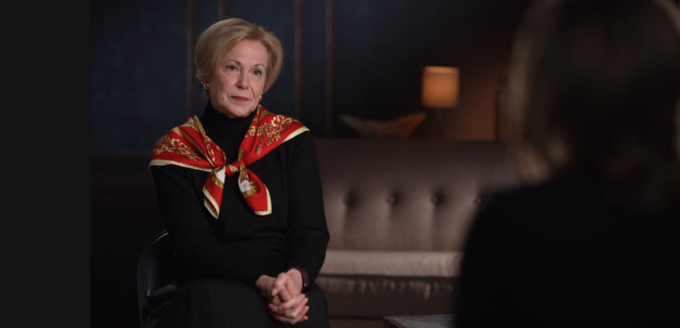 Dr. Birx looked back on her time with the task force, calling her role coordinating the administration's response to the ongoing coronavirus pandemic a "terminal event" for her career which spanned over four decades of public service. What we asked: Sometimes people say, well, Tony Fauci, when that happened to- to him, he would sort of gently come back up to the podium and set the record straight. What Birx said: "You know, people then want to define you by the moment and I understand- I, look, I understand how perceptions go. I understood that to go into the White House and try to support a comprehensive coronavirus response by utilizing the strength of the federal government would be a terminal event for my federal career, which is part of the reason why I didn't want to do it." Why it matters: In a moment of reflection, Dr. Birx realized that by taking the job at the White House, already beleaguered by bungled response to COVID-19 and other polarizing domestic policies, "I wouldn't be allowed to really continue successfully within the federal government." Pressed on if it meant the end of her federal career, Birx told Brennan she planned to retire from her current position at the CDC within the next four to six weeks. 3. Birx on being a team of "1" inside the Trump White House 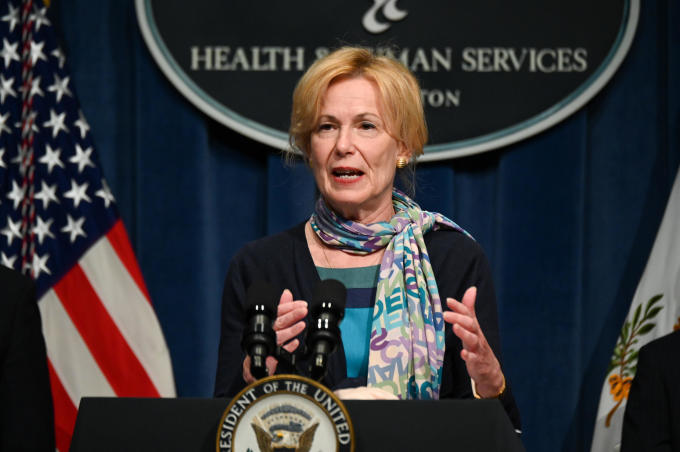 Birx later revealed that she had no full-time team in the White House working on the response to COVID-19 under the former president. What we asked: You said you were just one. You were coordinator of the task force. What do you mean, you were just one? What Birx said: "There was only one full-time person in the White House working on the coronavirus response. That's what I was given. So what I did is I went to my- my people that I've known all through the last years in government, all 41, and said, can you come and help me? And so I was able to recruit from other agencies, individuals. And certainly, Irum Zaidi who I brought in from PEPFAR, was my chief epidemiologist and data developer for the PEPFAR program, where we really revolutionized data to really end the- work on ending the pandemic of HIV and TB in sub-Saharan Africa. And so I would be able to wicker together a group of volunteers who really helped me. And I had one incredible support person, Tyler Ann McGuffee, who really helped make sure I was at meetings on time and didn't miss emails. But there was no team, full-time team in the White House working on coronavirus." Why it matters: A senior adviser to former Vice President Mike Pence, who led the White House coronavirus task force, confirmed to CBS News that the staff who worked with Birx were from her days with PEPFAR, and that she put together that team. However, the adviser disputed the premise that Birx was denied necessary staff. "There were 7-8 full-time staff detailed from other agencies to her. They were paid," the senior adviser told CBS News. Pence, meanwhile, was also given no additional White House staff, and his existing team worked on the COVID-19 response. There have been nearly 25 million confirmed cases of the coronavirus in the U.S. and more than 417,000 Americans have died from COVID-19, according to Johns Hopkins University. Mr. Biden has warned the outbreak will get worse before it improves, and has made combatting the coronavirus his top priority. 4. Fauci says goal of 100 million COVID-19 vaccine shots in 100 days "is a floor, not a ceiling" 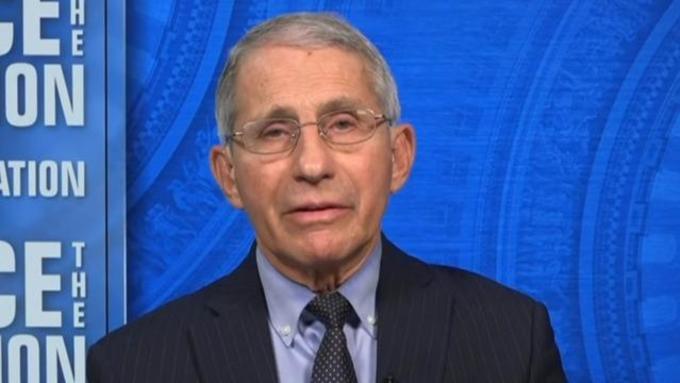 Dr. Anthony Fauci, chief medical adviser to President Joe Biden, said Sunday that the new administration's goal of administering 100 million doses of a coronavirus vaccine in Mr. Biden's first 100 days in office is a "floor, not a ceiling." What we asked: President Biden's goal puts that benchmark out in April. Are you deliberately setting expectations low? What Fauci said: "It's going to be a challenge. I think it was a reasonable goal that was set, we always want to do better than the goal you set, but it is really a floor and not a ceiling." Why it matters: Mr. Biden has been clear in the weeks before and the days since his inauguration that confronting the coronavirus crisis and its economic impacts is a foremost priority for him, and pledged to administer 100 million vaccinations in his first 100 days in office. Last week, the president unveiled his national strategy for combatting the pandemic and used his executive authority to ramp up production of vaccines, testing supplies and personal protective equipment. Already, more than 41.1 million doses of coronavirus vaccines have been distributed and 20.5 million doses have been administered, according to the Centers for Disease Control. Nearly 17.4 million people have received at least one of their shots. Fauci said that by the end of Mr. Biden's first 100 days in office, there will be people "who will have gotten two doses and then some that are still on their first dose." "When you add them all up and you look at shots, it's 100 million shots in the arms of people within the first 100 days," he said. 5. Two bonus "Facing Forward" podcasts today: The doctors are in 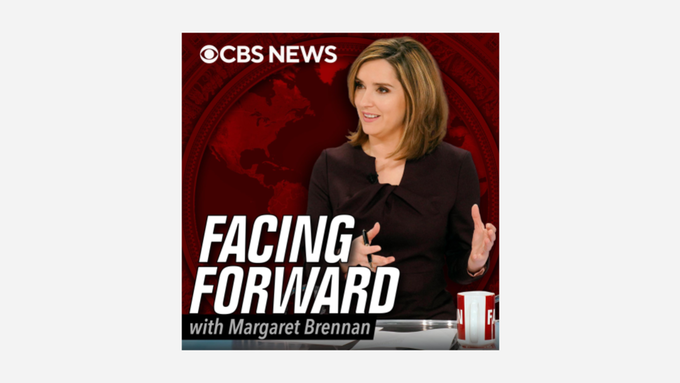 Listen to a special edition of "Facing Forward with Margaret Brennan" for an extended version of Margaret's interview with Dr. Birx. Plus, another bonus episode with insight and analysis from former FDA commissioner Dr. Scott Gottlieb on the coronavirus pandemic. Missed our inaugural episode this week? Listen to our conversation with Illumina CEO Francis deSouza here.
| 
No comments:
Post a Comment